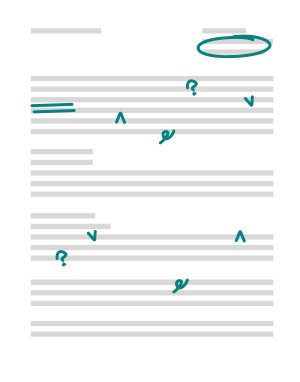
In today’s increasingly connected world, your online persona can be an important part of your personal brand. For job-seekers, that can be either a blessing or a curse, depending upon how they use their various social media platform tools. Of course, many people wonder whether they need to focus attention on their social media presence by including links in their resume. Since your social media presence can offer employers a different side of your persona, it is a good idea to include links to relevant platform pages. The more important questions, however, deserve more attention. For example, which social media platforms should you include, and what’s the best way to document those details in your resume?
Why Include Social Media on Your Resume?
Before we address those questions, however, it may be helpful to consider the reasons why you should include social media accounts on your resume. There are several reasons you should consider this option:
Many potential employers and hiring managers will search for you online anyway, so you may as well be proactive by listing the links.
Social media pages can showcase you as an individual, rather than just a list of past jobs, skills, and achievements.
Including social media in your resume can motivate you to clean up your platform pages. More on this later.
A well-rounded online brand can help you stand out from your competitors. It may be the edge you need to win that all-important interview.
Which Social Media Links Should You Include on Resume?
Before you list social media links on your resume, make sure you take stock of the most important. It’s one thing to know how to include social media links on a resume. It’s quite another to know which accounts might matter to your job-search effort.
LinkedIn: If you don’t have a LinkedIn page yet, get one. It is the top online platform for professionals and can be the perfect vehicle around which to build your online brand. If you already have a LinkedIn profile page, be sure to optimize it with a professional photo, proper keyword usage, a polished summary, and detailed work history. Our post, How to Write the Perfect LinkedIn Summary, can provide the help you need to develop your page.
Including Twitter On a Resume:
Tweeting is a way of life for many people these days. If you have a Twitter account and are actively posting about your industry, you might want to include that account in your resume too. However, you should only include it if you use that account to tweet about items, stories, or trends that are relevant to your industry. That doesn't mean that every tweet has to be industry-specific, of course. But your social media posts should include industry-related tweets, and be written in clean, professional language.
Facebook, Instagram, and YouTube On a Resume:
We’ve included all three of these popular social media platforms together, because chances are that you probably won’t need to include them. The only time you might want to include any of these sites is if you use them to showcase your professional skills. Otherwise, their niche usage probably won’t add anything positive to your resume.
How Should You Include Social Media Links in Your Resume?
If you’re wondering how to include social media links on a resume, we have the answers you need. A resume with social media links is like any other resume. The only difference will be that you may want to include a separate section for social media links if you have several accounts that are all relevant to your professional life. If note, then that information can be placed at the top of the resume with your personal contact information. For example:
Your First and Last Name
Your Address, Your City, Your State – Your Phone Number – Your Email Address
LinkedIn: @ [Your LinkedIn Handle] – Twitter: @ [Your Twitter Handle]
Finally, a word about social media channel icons. Some people recommend including those icons on your resume. We would urge you to avoid that, for a couple of reasons. It’s unnecessary, and usually done to appear trendy. Skip the graphics. Clean, clear text is important and far more legible, especially if your resume has to be read by an ATS. Instead, just write out the social media platform name.
Your social media accounts can play an important role in differentiating you as a worthy job candidate to a future employer. The key is to include only the most relevant social media links and clean up any social media profiles that may cause controversy. When employers and hiring managers search your name or follow your links, you want them to see a skilled, professional, and non-controversial job candidate. If you’re successful, chances are that you’ll be well on your way to landing even more interviews and getting that great job you deserve.
Clean Up Your Online Presence!
Regardless of whether you choose to include these social media sites, you should consider sanitizing your online presence. Many employers and hiring managers will likely conduct a Google search of your name to check out your online brand. They do this for two main reasons. First, it provides an opportunity to learn more about you as a person. More importantly, however, that search can help give them peace of mind. After all, the last thing they want to do is hire you and then discover that you have several years’ worth of controversial videos or tweets posted online.
If possible, go through your social media pages and remove content that could be considered controversial. That may include discussions or posts related to race, gender, ethnicity, religion, and even political opinion. In other words, anything that might be considered even marginally offensive to a potential employer or hiring manager should be promptly removed.
Written by
ZipJob Team
The ZipJob team is made up of professional writers and career experts located across the USA and Canada with backgrounds in HR, recruiting, career coaching, job placement, and professional writing.
